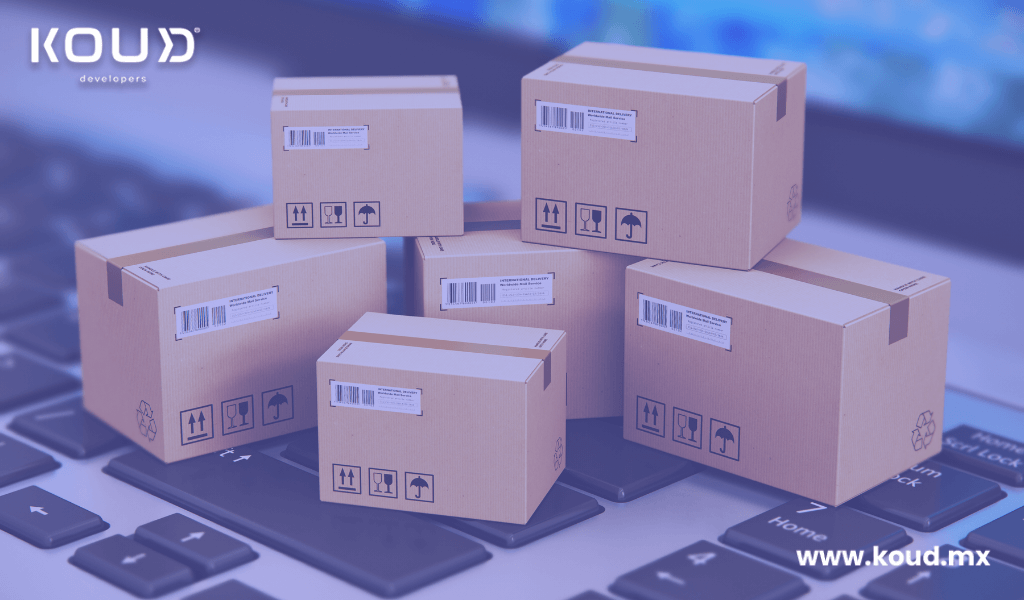The future of custom software for logistics companies
The logistics sector is undergoing constant transformation due to rapid technological evolution and the increasing demand for more efficient services. In this context, custom software has become a fundamental tool for logistics companies looking to improve their operations, reduce costs, and enhance the customer experience. As technology advances, the future of custom software for logistics points toward greater automation, integration of emerging technologies like AI and blockchain, and more advanced process optimization.
In this article, we will explore the key trends that will define the future of custom software for logistics companies.
The future of custom software for logistics companies
1. Artificial intelligence (AI) and machine learning for process optimization
Artificial intelligence (AI) and machine learning are revolutionizing how companies manage their logistics operations. These technologies enable real-time analysis of large volumes of data and provide automated solutions that improve process efficiency and accuracy.
- Route optimization: Machine learning algorithms calculate the most efficient routes in real-time, considering factors such as traffic, weather, and road conditions.
- Demand forecasting: AI enables logistics companies to anticipate spikes or drops in demand, allowing adjustments in inventory and transport capacity accordingly.
- Warehouse automation: Integrating AI with robots and warehouse management systems (WMS) automates tasks like picking, storing, and dispatching goods, improving accuracy and reducing time.
2. Blockchain for transparency and traceability
Blockchain technology promises to revolutionize logistics management by offering an unprecedented level of transparency and security in the supply chain. With custom software that incorporates this technology, companies can ensure product traceability and secure information sharing.
- Traceability: Blockchain allows companies to track a product’s origin at every stage of the supply chain, which is crucial for industries dealing with perishable or highly regulated products.
- Smart contracts: Blockchain facilitates the automatic execution of contracts when specific conditions are met, eliminating intermediaries and speeding up logistics processes.
3. Total automation of the supply chain
The future of custom software in logistics is also oriented toward the total automation of the supply chain. This includes everything from automated inventory management to shipment planning and delivery with minimal human intervention.
- Predictive inventory management: With automation, software can adjust inventory levels automatically based on demand patterns, reducing costs associated with overproduction or stockouts.
- Automated planning and tracking: Advanced software enables the planning, execution, and monitoring of all supply chain stages in real-time, minimizing errors and improving operational efficiency.
4. Custom solutions for green logistics
With the increasing focus on environmental sustainability, the future of custom software in logistics will involve developing solutions that promote green and sustainable logistics.
- Fuel optimization: Software can optimize routes and vehicles to reduce fuel consumption and carbon emissions.
- Environmental impact monitoring: Companies can use custom software to measure and report their carbon footprint, adjusting their operations to meet environmental regulations and sustainability goals.
5. Integration with IoT technologies
The Internet of Things (IoT) plays a crucial role in the future of logistics by enabling the connection of devices and sensors in real-time. Custom software that incorporates IoT can dramatically improve visibility and control over logistics operations.
- Real-time tracking: With IoT devices integrated into vehicles and warehouses, companies can monitor product locations, shipment conditions, and storage conditions in real-time.
- Predictive maintenance: IoT sensors can provide data on the condition of vehicles and machinery, enabling preventive maintenance before failures occur, reducing downtime.
6. Adaptability and scalability of custom software
Custom software will become increasingly adaptable and scalable, allowing logistics companies to adjust quickly to market changes or demand fluctuations. Tailored solutions will offer the flexibility needed to integrate new functionalities without disrupting current operations.
- Scalability: As operational volumes increase, the software can be adapted to handle larger capacities in storage, transport, and distribution.
- Continuous updates: Custom platforms will allow frequent updates without affecting performance, ensuring that companies always use the latest technology available.
7. Improved customer experience
The future of custom software will also focus on enhancing the customer experience. This will be achieved through the integration of technologies such as AI, IoT, and blockchain, allowing greater control and visibility of shipments for end customers.
- Real-time tracking for customers: With automation and real-time tracking, customers can access updates about their orders at any time.
- Seamless communication: Custom systems will offer better communication between customers and logistics companies, providing automatic updates, notifications, and answers to frequently asked questions.
Custom software will play a crucial role in the future of the logistics industry, enabling companies to adapt quickly to new technological and market demands. With the integration of AI, blockchain, IoT, and full automation solutions, custom software will be the key to improving operational efficiency, reducing costs, and offering a more agile and transparent service.
Investing in custom software is essential for logistics companies looking to stay competitive and meet the evolving needs of their customers and the market.

